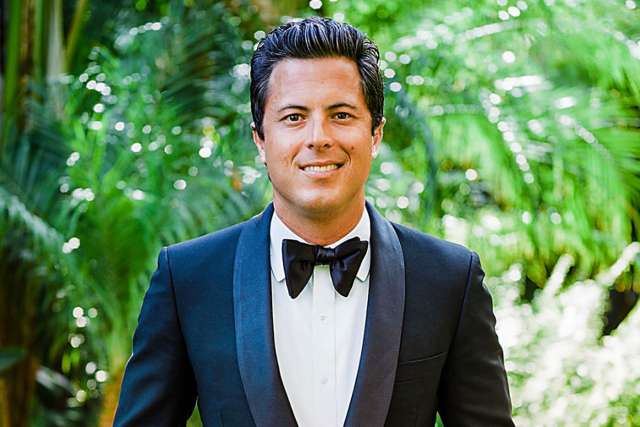By Julie Kirst
All loss is difficult, but the sudden death of a loved one leaves no time to prepare and can be especially devastating. While the grieving process is different for each person, some bravely channel their grief into helping others. When philanthropist and restaurateur Peter Morton’s son, Harry, died unexpectedly of sudden cardiac arrest at the age of 38, Morton vowed to make a difference. His recent contribution to UCLA Health has established the UCLA Harry Morton Congenital Heart Disease Screening Fund in memory of his son, and also benefits the existing Congenital Heart Disease Program Greatest Needs Fund. This is in addition to his recent support for the Ocular Oncology Research Program led by Dr. Kelsey Roelofs (FEL ’22), UCLA Stein Eye Institute.
Harry was living a seemingly healthy life, with no outward signs of a heart condition, when he died suddenly from undiagnosed congenital heart disease in 2019. His family wanted to honor the philanthropist he was and established the fund to help advance screening opportunities and treatment for the condition. The gift will support pediatric and adult patients by providing early-detection screening and diagnosis through scans and heart monitoring to ensure patients are able to access care. It also will fund research to expand the understanding of congenital heart disease, as well as development of a new screening protocol for anomalous coronary artery — a coronary artery that has an abnormality or malformation present at birth.
“Our main goal is to raise awareness of congenital heart problems and help those without resources to get the care they need,” Morton said. “We also want to make sure others know about this disease, and we encourage people to talk with their primary care doctor about their heart health.” Efforts funded by the gift include outreach through distribution of a flier about heart health in UCLA Health clinics and at dozens of UCLA Health community events. Outreach also includes distribution of the flier in 200 UCLA Medical Plaza, named the Peter Morton Building in honor of his 2004 contribution of $10 million to help fund new operating rooms and expand radiation therapy and research for breast cancer treatment.
“Peter Morton has been a valued UCLA partner for many years, and his amazing generosity in creating the UCLA Harry Morton Congenital Heart Disease Screening Fund will bring much-needed attention to the condition,” said Johnese Spisso, MPA, president of UCLA Health, CEO of the UCLA Hospital System and associate vice chancellor of UCLA Health Sciences. “This gift will pave the way for more screenings and early detection, enabling people with congenital heart issues to receive the health care they need to live more fully.”
A third-generation restauranteur, Harry Morton followed in his family’s footsteps and was founder of the chain Pink Taco. His father, Peter Morton, co-founded the Hard Rock Cafe chain, and his grandfather, Arnie Morton, founded the restaurant chain Morton’s The Steakhouse. Cardiovascular diseases are the leading cause of death globally, and sudden cardiac death (SCD) is the single-greatest cause of natural death in the United States, typically striking people in their mid-30s to mid-40s. In more than 50% of cases, SCD has no warning signs. The American College of Cardiology and American Heart Association urge screening for a family history of SCD. For those who know they have a family history of heart disease or SCD, the organizations recommend screening for asymptomatic left ventricular dysfunction.
If a person has a cardiac condition, it is important for family members to learn cardiopulmonary resuscitation and how to use automated external defibrillators, which are located in many offices and public buildings.
“Harry was a man of numerous accomplishments, and a dear friend to many. It means so much to our family to create a legacy for Harry in this way,” Morton said. “It gives me great satisfaction to play a vital role in research focused on congenital heart disease that will change outcomes so that other families will not have to experience what we have.”
Julie Kirst is a senior writer for UCLA Health Sciences Development
For more information, contact Ellen Haddigan-Durgun at: 310-321-8366; or Lindsey Walton at: 424-468-7588
